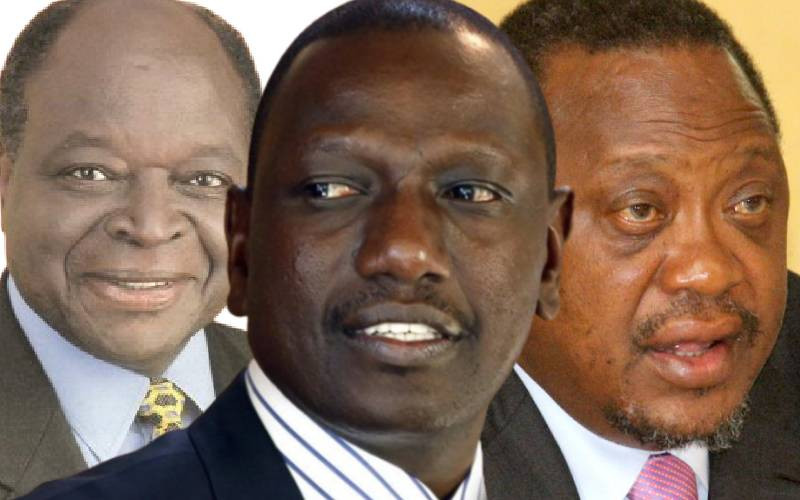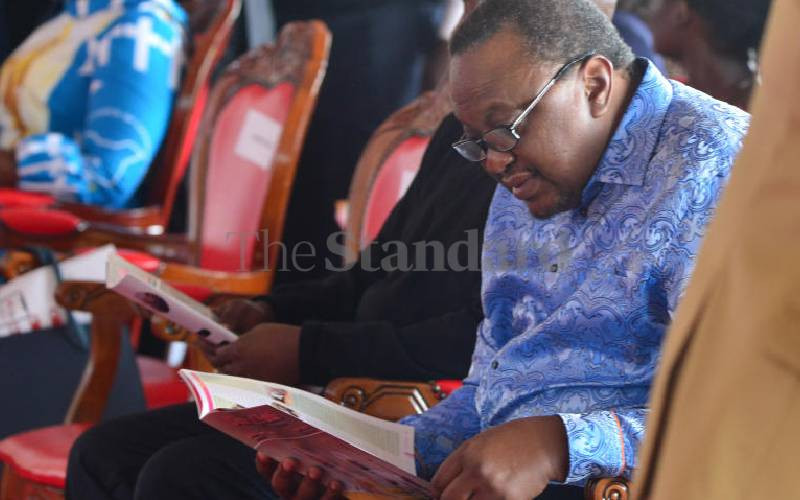By Edward Kahuthia
President Uhuru Kenyatta in keeping to his pre-election promise stated in his inaugural address that measures will be put in place within the first 100 days to effect the pledge of a laptop for every child joining class one from next year.
However, the President put a rider to this promise: it will only apply to children in public schools.
This limitation on the beneficiaries has to be faulted even before the bureaucrats sit to hammer out a plan on how to implement the most cited pledge from the many goodies promised by the Jubilee government.
So the question by this limitation: Is President Uhuru about to commit the first violation of the Constitution that he has vowed to uphold and defend? A cursory glance at the supreme law seems to suggest that excluding children in private schools in the laptops programme is discriminatory.
The Constitution at Article 27 states that every person is equal before the law and grants every person the right to equal protection and benefit of the law.
Article 53 (2) mandates that in any matter concerning a child, his or her best interests are of paramount importance. Lastly, Article 47 (1) grants every person the right to administrative action that is reasonable and procedurally fair.
Whereas the laptop pledge may not be “law” in the strict sense of the word, it is inexcusable to discriminate through policy or practice. Article 27 (4) frowns upon any form of discrimination advanced by the state on among other grounds, “social origin”.
There is a misguided notion that children attending private schools are from “rich” or “able” backgrounds. Firstly, nothing could be further from the truth! Visit any slum in Nairobi and what you find is a plethora of “private” schools attended by children from the poorest of backgrounds.
And their parents have ready reasons why they go for these informal schools: there’s no “tuition fees” or “extra classes” fees common in public schools, they do not need to buy school uniform or text books and the school is near home and therefore no transport costs.
Even for the conventional private school, most middle-class parents forego all that is possible to sacrifice to ensure the children get a decent education and perhaps the only inheritance they can pass on. This, not because they have extra cash but because we have a problem with the public school system.
Away from the legalese, President Uhuru is a President for all Kenyan children and was voted in by parents from all walks of life on the strength of the promises he made and for making a Nation believe again.
How do you explain to a seven year old attending class one in Mathare slums that his President preferred some other child from the neighbourhood simply because they attend different schools? Mr. President, help us avoid this difficult question by including all our children in the digital revolution.
 The Standard Group Plc is a
multi-media organization with investments in media platforms spanning newspaper
print operations, television, radio broadcasting, digital and online services. The
Standard Group is recognized as a leading multi-media house in Kenya with a key
influence in matters of national and international interest.
The Standard Group Plc is a
multi-media organization with investments in media platforms spanning newspaper
print operations, television, radio broadcasting, digital and online services. The
Standard Group is recognized as a leading multi-media house in Kenya with a key
influence in matters of national and international interest.
 The Standard Group Plc is a
multi-media organization with investments in media platforms spanning newspaper
print operations, television, radio broadcasting, digital and online services. The
Standard Group is recognized as a leading multi-media house in Kenya with a key
influence in matters of national and international interest.
The Standard Group Plc is a
multi-media organization with investments in media platforms spanning newspaper
print operations, television, radio broadcasting, digital and online services. The
Standard Group is recognized as a leading multi-media house in Kenya with a key
influence in matters of national and international interest.








